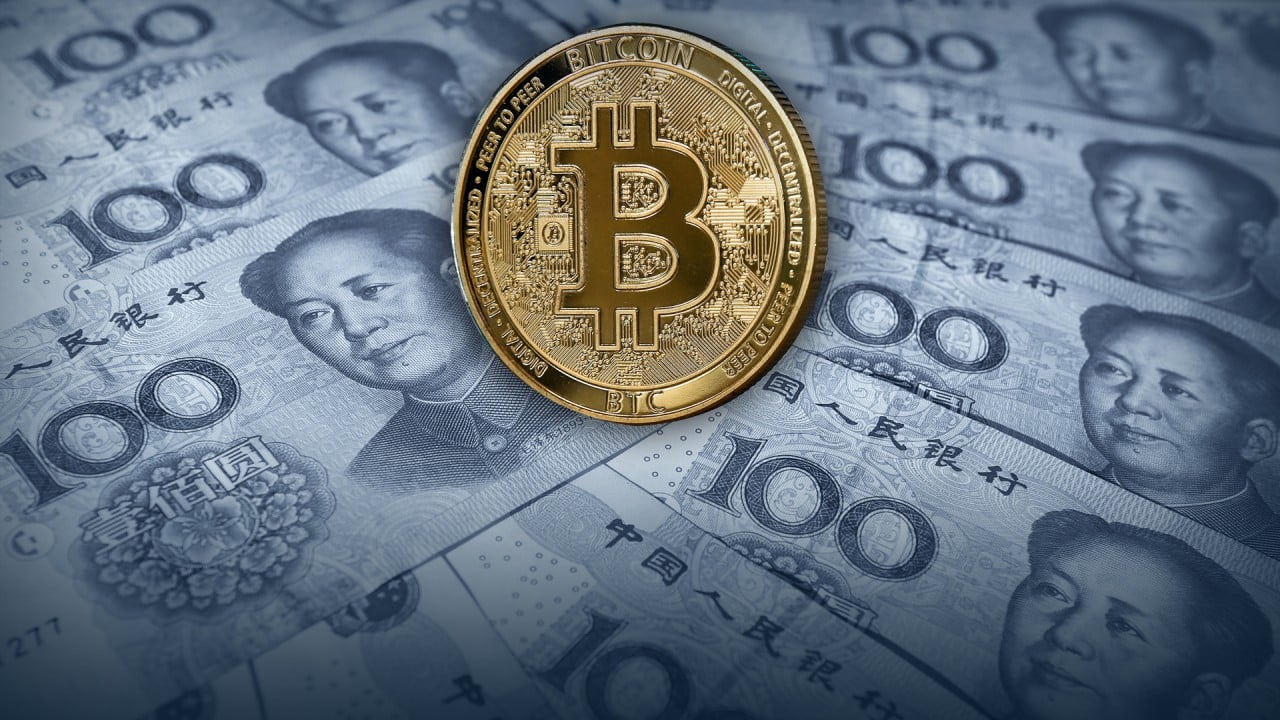
Hong Kong bitcoin, ether ETFs see tepid trading on debut as city looks to bolster virtual asset market
- Six bitcoin and ether ETFs saw US$12 million in trading on Tuesday, compared with US$4.6 billion for US bitcoin ETFs on their first day
- The three bitcoin ETFs climbed by less than 2 per cent each by the end of trading, while the ether ETFs were down by less than 1 per cent
Asia’s first exchange traded funds (ETFs) that invest directly in bitcoin and ether started trading in Hong Kong on Tuesday with early gains in morning trading, marking a significant move in the city’s effort to become a cryptocurrency hub.
Six spot crypto ETFs that invest in the world’s two largest cryptocurrency tokens debuted on the Hong Kong stock exchange, launched by mainland Chinese fund managers ChinaAMC, Harvest International, and Bosera Asset Management, which is teaming with HashKey Capital, the investment arm of Hong Kong crypto firm HashKey Group.
ChinaAMC and Harvest’s bitcoin ETFs closed up about 1.5 per cent each, while Borsera’s closed up 1.8 per cent. All three ether ETFs closed down less than 1 per cent.
Hong Kong’s spot crypto ETFs have one big attraction: no tax
The bitcoin ETFs saw nearly HK$67 million (US$9.2 million) in trading volume by the end of the day, with ChinaAMC’s ETF seeing the most trading with about HK$37 million changing hands.
The six Hong Kong funds racked up nearly HK$87 million by the close of trading. In comparison, 11 bitcoin ETFs in the US, which debuted in January, saw more than US$4.6 billion traded on their first day.
Hong Kong could expect the trading volume of its spot crypto ETFs to reach 20 per cent of those in the US within about a year, HashKey Group chief operating officer Livio Weng said at a briefing on Tuesday.
Market makers likely contributed the bulk of first-day trading, so it remains to be seen how demand for these products will hold up in the coming days and weeks.
Fund managers and brokerages are dangling favourable policies to draw investors, with Harvest waiving its management fee for six months and Bosera for four months. Online Chinese brokerage Tiger Brokers said in a statement on Monday that it is offering platform fee exemptions for the first batch of these ETFs.
Given the Hong Kong ETF market’s diminutive size compared with the US, the funds are hoping to draw investors looking for products offered specifically in Asia.
Non-Hong Kong residents can purchase shares in the crypto ETFs as long as they pass local know-your-customer (KYC) requirements, HashKey Capital said in a statement on Tuesday.
While that means the ETFs are technically available to mainland Chinese investors who have Hong Kong bank or brokerage accounts, investing in these products could still be difficult because mainland identity cards may not be able to pass brokerage platforms’ KYC procedures, said one industry insider who declined to be named due to the sensitivity of the matter.
Beijing has strictly banned commercial cryptocurrency trading on the mainland. Other types of ETFs can already be traded through the Stock Connect scheme that links to markets in Shanghai and Shenzhen.
Hong Kong regulators at the launch event on Tuesday morning, which included a bell-ringing ceremony, cautioned that there are high risks involved in the crypto-based products despite the successful listings.
“Our approval for virtual asset ETFs does not equate to us supporting the relevant virtual assets or us encouraging the public to invest in them,” Christina Choi Fung Yee, executive director of investment products at the Securities and Futures Commission, said during the ceremony. “Virtual assets are extremely speculative with highly volatile prices … I’d like to remind everyone that virtual assets are not suitable for all investors.”


